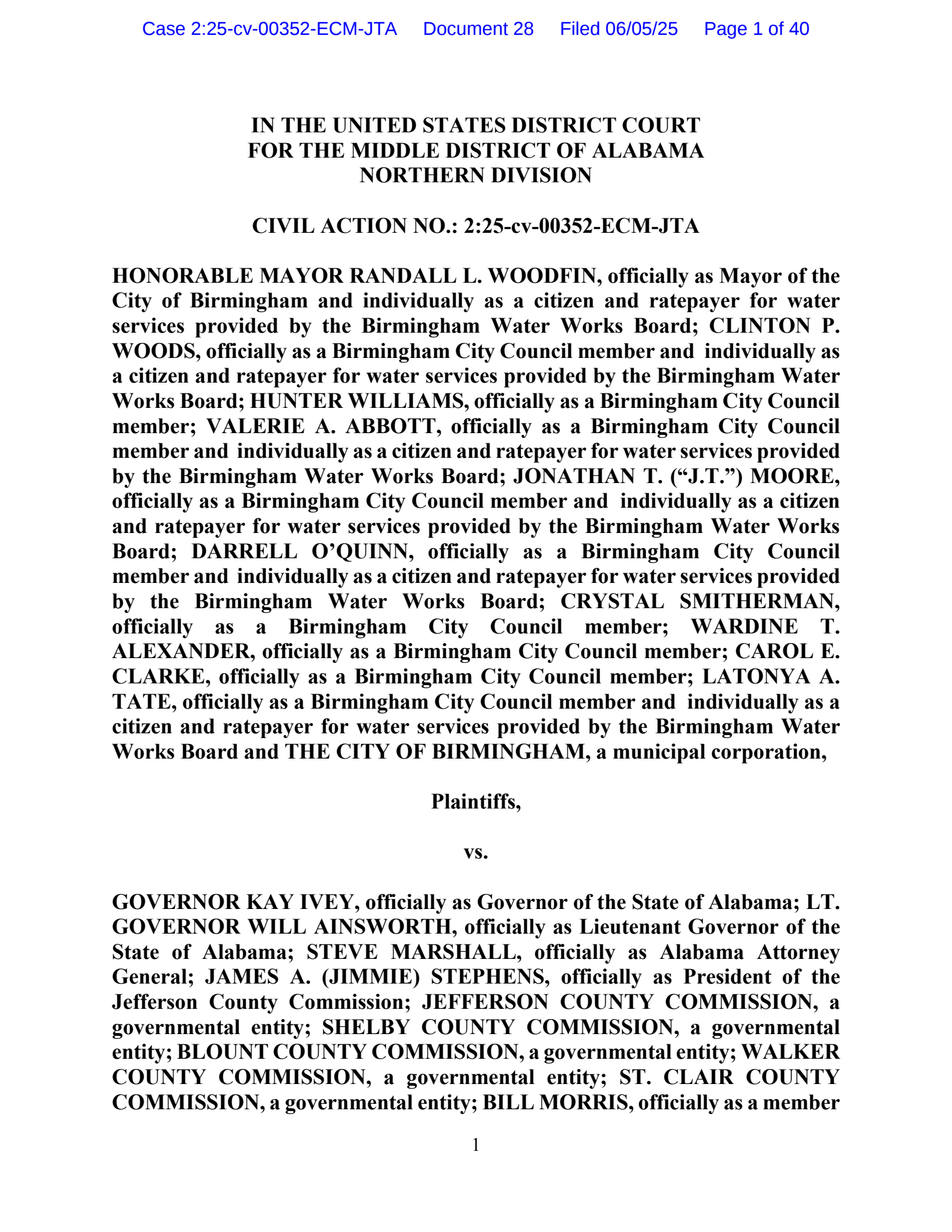Birmingham has intensified its legal battle by amending a lawsuit against Alabama leaders, alleging that a new law transferring water board control embodies racial discrimination and violates constitutional rights.
Birmingham files amended complaint over water board control law

Key Takeaways:
- Birmingham amends lawsuit against Alabama leaders.
- Allegations of racial discrimination are central to the case.
- The lawsuit cites constitutional violations by the state.
- A law transferring water board control is being contested.
- The case underscores tensions between Birmingham and state officials.
Birmingham Amends Lawsuit Against Alabama Leaders
Birmingham has escalated its ongoing legal dispute with Alabama state officials by amending its lawsuit to include allegations of racial discrimination and constitutional violations. The city’s legal action challenges a new state law that transfers control of the Birmingham Water Works Board.
Allegations of Racial Discrimination
The amended complaint asserts that the law is rooted in racial bias. Birmingham officials argue that the legislation disproportionately targets the city’s predominantly African American community. They claim it is a deliberate move to undermine the authority and autonomy of Birmingham’s local governance.
Claims of Constitutional Violations
Beyond accusations of racial discrimination, the lawsuit contends that the state law violates constitutional rights. Birmingham alleges that the law oversteps state boundaries by infringing upon the city’s right to manage its own utilities, a power they argue is protected under the Constitution.
Details of the Contested Law
The law in question transfers significant control of the water board from the city to the state. This shift includes changes in board appointments and oversight, effectively reducing Birmingham’s influence over its water resources. City officials express concern over losing control of a vital utility that serves their residents.
Impact on the City
Birmingham leaders worry that the loss of control could lead to decisions that do not align with the best interests of their community. They highlight potential risks to water quality, rate-setting, and infrastructure investment that could arise if the board is managed by state-appointed officials.
Response from Alabama Leaders
As of the publication date, there have been no official statements from Alabama state leaders regarding the amended lawsuit. The absence of a response leaves questions about the state’s position on the allegations and how they intend to address the city’s concerns.
Conclusion
The amended lawsuit signifies a deepening rift between Birmingham and Alabama state officials. The city’s move to include allegations of racial discrimination and constitutional violations underscores the seriousness of the dispute. The outcome of this legal battle could have significant implications for municipal autonomy and state authority in Alabama.











